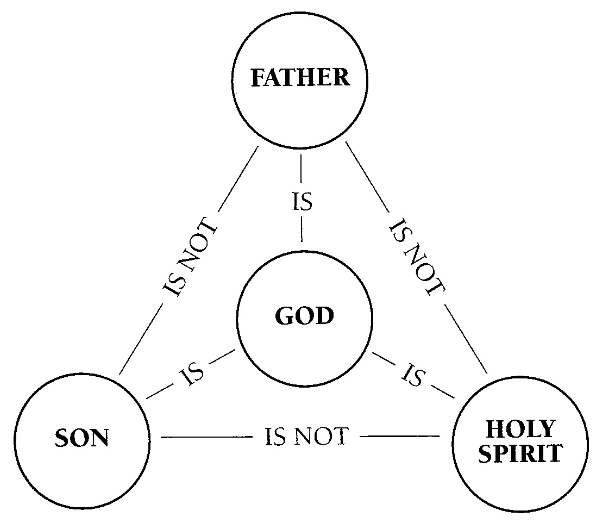Given what is said in prophecies about Christ's sudden and unexpected return in the book of Revelation, there was no need for Jesus to include him in that sentence. The Holy Spirit's infinite knowledge would include knowing that that date would only become known to others when the Father permitted others to know. We are only given to learn a tiny bit about the Holy Spirit. But trinitarians believe him to be included in only God knowing.
I refer to Revelation chapter 14 but hesitate to go into it, as that might create a debate about what is only a clue, that leads to interpretations. It's just that in verse 13 the Spirit speaks (about martyrs of the faith whose souls were already under heaven's altar, see Rev. 6:11). The Spirit speaks about a time-period beginning in the 1st century with the martyrdom of Christians, going on till this very day, but we can only know that with hindsight, for Christ still has not returned. Yet in chapter 14 we are then told of one sitting on a cloud "like unto the Son of man". An angel comes out of heaven's temple to say the time has come to reap (link to Matthew 13:30-43). Then another angel is told the time has come for the winepress of God's wrath to be filled. This is the time of Christ's return to usher in the Day of Resurrection and Judgment, as per Matthew 24:36. Just before it happens, it appears that the angels in heaven are given to know.
There appears to be a sequence of instructions about who is to do what, issuing from the heavenly temple. Given what Jesus said in Matthew 24:36, God knew back then when that time would be, and when others would get to know. After the glorified Christ returned to heaven, this bit in the prophecy of Psalm 2 was fulfilled:
"Yet have I set my king upon my holy hill of Zion. I will declare the
decree: the Lord hath said unto me, Thou art my Son; this day have I
begotten thee. Ask of me, and I shall give thee the heathen for thine
inheritance..." etc. Psalm 2:6-8 K.J.V. (emphasis mine.)
There could be a great span of time between Christ asking, and then breaking the nations as with a rod of iron. Hindsight would indicate this. Therefore, when Jesus said (before that prophecy was fulfilled with his resurrection) that he didn't know the time, that makes perfect sense. He had to return to heavenly Mount Zion (where the heavenly temple is figuratively located) to make his request. Then, when God decreed the time had come to break the nations in wrath, Christ would descend. The Holy Spirit in heaven would already know that time but remain silent about it, only acting upon the Father's heavenly instruction to "go forth", with the two reapings of the one harvest, to those doing that work, and then the action would start.
What is clear is that the Father has his role and particular functions in the Godhead, as does the Son, as does the Holy Spirit. It is in the Father's jurisdiction to determine and decree such times, then delegation takes place. The timing of matters once Christ returned to heaven in glory is not given to us to know. We only know that when the Father says "Go", that command is conveyed to those who are to go, and invariably the Holy Spirit is the conveyor of such instructions. In the scriptures he speaks the least of all three Persons in the Godhead. He acts, and his role is to glorify Christ. When Christ only mentioned the angels in heaven and the Son (on Earth at the time of speaking) not knowing, there was no need to mention the Holy Spirit, who had not as yet been poured out on Christians. That would not happen till after Christ's resurrection, and then Christians began to learn about his awesome power and role.
None of this amounts to a 'trinitarian' explanation, but I believe in the Trinity doctrine, and can only assume such things. You assume that the Holy Spirit would know the date of Christ's return even before Jesus said those words prior to being resurrected. Yes, he could have known but would never speak of such a thing. Until the Father spoke the command (which is still future), he would refrain from presumptuously speaking of that date, for his role in the Godhead is to act on the Father and the Son's expressed will.
As for the question quoting 1 Cor. 2:10 ESV, "these things God has revealed to us through the Spirit. For the Spirit searches everything, even the depths of God", verse 11 goes on to say the Spirit of God knows the things of God. But there's a critical difference between his knowing and our knowing. Humans are not to be told when Christ will return. This certainly indicates that the Holy Spirit knew things like the time of Christ's return. However, there was no call for Jesus to go into such details, as the Spirit had not yet been given.
Fortunately, this question has been moved to this site, as the verse in question itself does not answer the question. Other texts have to be invoked. When those are prophecies, some of which are still future, interpretation is required. And we all know how dodgy interpretations of prophecies often are! Including my take. The correct answer will be revealed to those in the glory, with Christ.

